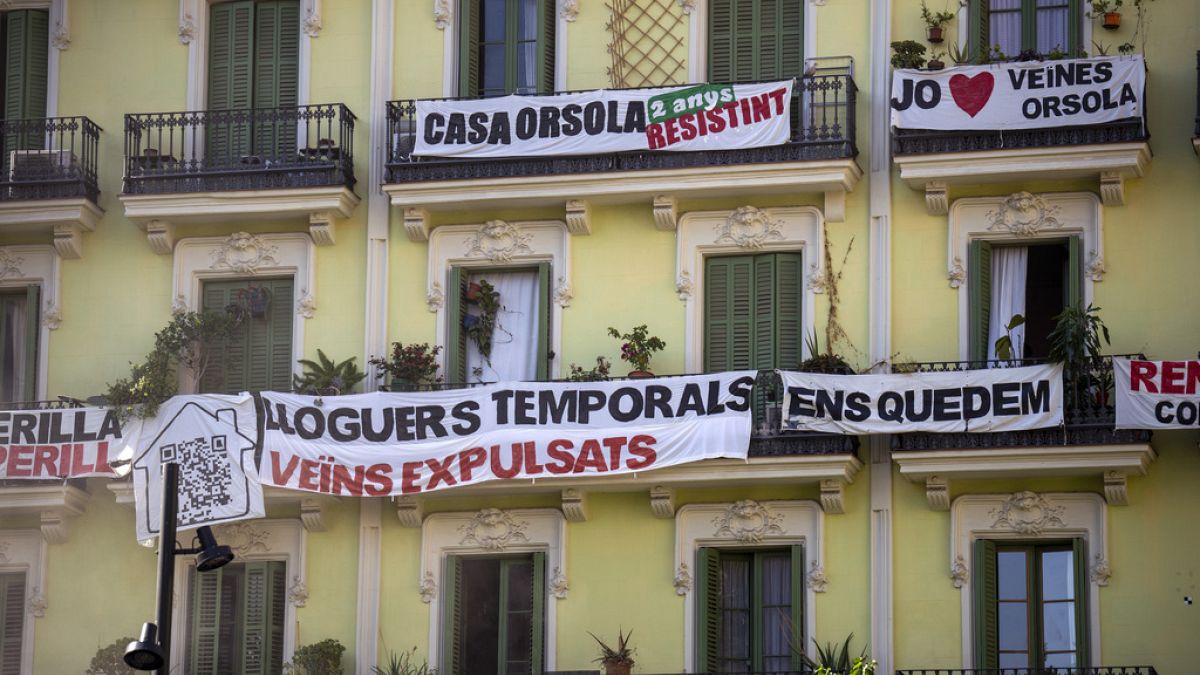If Europe could sanction Putin, it can do the same for Bangladesh

The opinions expressed in this article are those of the author and do not represent in any way the editorial position of Euronews.
It is easy to call for human rights from EU offices in Brussels and Luxembourg, our old, established democracies. In Bangladesh, Yunus is trying to build a new one. We must help him, Muddassar Ahmed writes.
Bangladesh’s ex-leader Sheikh Hasina and her entourage had nearly two decades to feather their nests before they were driven out of the country in a popular revolution last summer.
Bangladesh’s new government says that nearly $248 billion (€237bn) was stolen by her and her cronies.
Businesses linked to Hasina’s Awami League took out huge loans from state-owned banks that were never repaid. That cash was funnelled out of Bangladesh using the Hundi money transfer system.
An investigation by the Observer and Transparency International suggests that as much as £400 million (€480.3m) of that money has been spent on UK property, an issue brought to the fore recently by the resignation of Tulip Siddiq, the British MP and Hasina’s niece, from her role as anti-corruption minister due to allegedly benefiting from London properties linked to the Awami League.
Bangladesh needs that money back, and it needs European and British help. British and European law firms, banks and estate agents could all be complicit in this massive theft from the people of Bangladesh.
Transparency International says that this is the first test of the UK in its ambition to be the anti-corruption capital of the world. It is a test for Brussels too.
How can we help Bangladesh?
Well, the first thing we can do is publicly admit there is a problem, and that it is our problem.
Then the EU needs to act on these misappropriated assets, including identify key targets for imposing financial sanctions and visa bans. National authorities need to locate assets owned by figures linked to the old regime in Bangladesh, and impose property and account freezes.
All this was quite reasonably demanded in September last year, and yet nothing has been done.
Tulip Siddiq’s departure does not mean the issue is over. Starmer needs to do more about the millions of pounds invested in the UK property market by Hasina and her allies. He should start by imposing sanctions on them.
Similarly, the EU could — and should — be helping Bangladesh’s new government to track down what has been stolen.
It is not a new departure for Britain and Europe, which imposed sanctions on Russia after the invasion of Ukraine quickly and efficiently. A total of 1,707 individuals and 339 entities have been sanctioned by the UK since the beginning of the war in Ukraine. A total of $350 billion (€334.4bn) of Russian currency reserves and 70% of the assets of Russian banks have been frozen.
These sanctions have hit Russia and its oligarchs where it hurts them most, in their pockets.
Ties between Bangladesh and Europe have always been strong. The EU is the largest destination worldwide for garment exports — which employs 4 million Bangladeshis, mostly women from impoverished areas — and the bloc is responsible for 20% of the country’s trade.
There have been some positive steps. On 10 January, the European Investment Bank’s Vice President Nicola Beer said that the bank was considering doubling its funding for the country and supported reforms by the new government under Nobel Peace Prize laureate Muhammad Yunus, amounting to $2 billion (€1.91bn) per year. She said that the Luxembourg-based bank would also support Bangladesh’s democratic transition, rule of law and freedom of expression.
Yunus has committed to all these things and more, and he’s been rightly lauded for it. The Economist ranked Bangladesh Country of the Year in 2024, and its new leader graced the front cover of Time magazine.
But his biggest challenge is rebuilding Bangladesh’s economy in the face of rising commodity prices and lacklustre growth.
Help Bangladesh rebuild its democracy
In his effort to retrieve Bangladesh’s stolen billions, Yunus faces significant odds. One of Bangladesh’s richest businessmen, Mohammed Saiful Alam, is threatening the new government with international legal action over the asset freezes and travel bans imposed by Dhaka as part of efforts to retrieve stolen billions.
Alam and his associates in turn are accused of siphoning money out of the banking system with the help of military intelligence officials, the FT reported.
If the EU seriously wants to help Yunus and the new Bangladesh, it should get tough on those who created this economic crisis with years of misrule, corruption, and theft.
It would also remind Bangladeshis that Europe and the UK have a moral compass defined by our commitment to democracy, fairness and human rights. So often, the EU is accused — and not always unfairly — of being mealy-mouthed in its commitment to those values.
It is easy to call for human rights from EU offices in Brussels and Luxembourg, our old, established democracies. In Bangladesh, Yunus is trying to build a new one. We must help him.
Muddassar Ahmed is Managing Partner at Unitas Global Advisory. He is a former independent adviser to the UK Government and a Senior Fellow at the German Marshall Fund.
World News || Latest News || U.S. News
Source link



